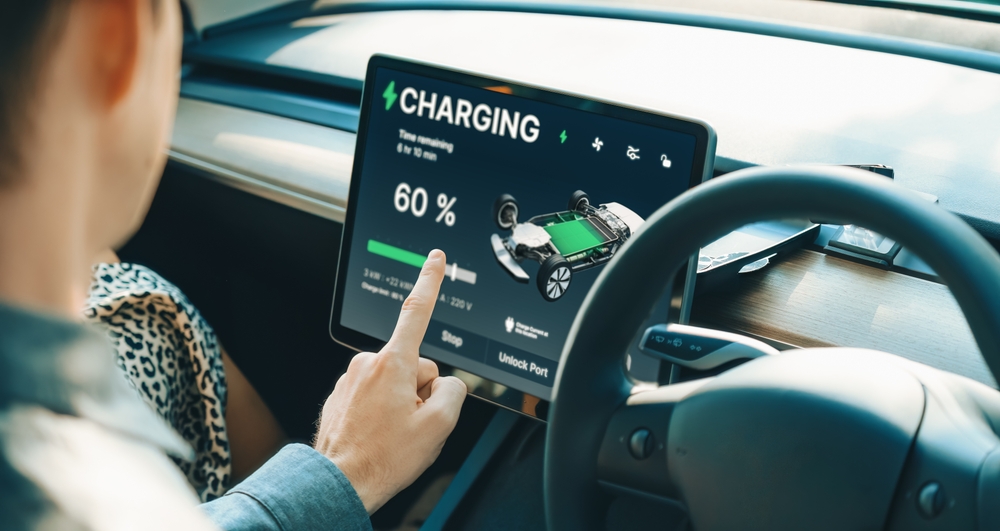Company cars are one of the many workplace benefits that employers offer their employees. This popular perk can help attract top talent to your business, foster a sense of belonging, and boost company morale. But how do company cars work?
In this guide, we’ll run the diagnostics over company cars to show you how company cars work while highlighting the advantages, alternatives, and responsibilities for employers that run company car schemes for their workers.
What Makes a Vehicle a Company Car?

Understanding how company cars work is vital for any employer. A company car is a vehicle that employers give to their employees as a tangible benefit, also known as a ‘benefit in kind’. Company cars can be given to an individual worker or provided as a pool car or van for multiple employees to use.
A vehicle is considered a company car when:
- It has been provided for both business and private use.
- It has been provided for business use only.
Employers often give employees, including company directors, a company car as a tool that allows them to do their job, especially when it involves regular travel. However, company cars can also be awarded as a means of recognising someone’s contribution to a company, or their status within the business.
How Does a Company Car Scheme Work for Employers?
Any employer can run a company car scheme, and you don’t have to be a ‘company’ to do so. In fact, all types of businesses including sole traders and the self-employed offer company vehicles. The list includes:
| Limited Liability Partnerships (LLP). | Limited Liability Companies (LTD). |
| Local government authorities. | Embassies. |
| Public Limited Companies (PLC). | Sole traders. |
| Charities. | Self-employed people. |
In most cases, a company car or van is owned or leased by the business or employer and used by the owner or director of the company or given to an employee for business use or a combination of both business and private use.
Your employees are usually required to be in permanent employment within your business to qualify for a company car scheme. Not only that, but they would also need to have a regular work pattern and their salary must not fall beneath the minimum wage line after joining the scheme.
Because HMRC classes company cars as a privilege funded by the employer, any employee who enters a company car scheme must pay Benefit in Kind (BIK) tax. The amount an employee pays in BIK depends on several factors such as:
| The vehicle’s age. | Engine size. |
| CO2 emissions. | Fuel type. |
| The vehicle’s list price. | Employee’s income bracket. |
Company cars can be funded in several ways. For example, an employer may prefer to buy or lease a company car, or they could join a company car allowance scheme that provides their employees with a financial incentive as an alternative to a company-owned car.
Employers can also cover the fuel, maintenance, and other expenses associated with a company car. These additional benefits are given to the employee in exchange for extra tax taken from their salary.

What are the Advantages of Company Cars for Employers?
There are many benefits for employers that operate company car schemes. From streamlining operations to keeping employee’s mobile, company cars and vans reflect an organisation’s investment in its workforce and are a powerful tool for rewarding and retaining its staff.
A company car can give employers a significant advantage over competitors who don’t offer this scheme. The benefits of company cars for employers include:
1. Significant Financial Savings
Providing and running company cars is an expense that many employers believe they can do without. However, company cars provide financial benefits for employers as well as their employees.
For instance, employers may offer company cars under the UK Government’s salary sacrifice scheme where staff pay towards it from their wages. This method can produce significant savings in National Insurance (NI) contributions for the employer. Similarly, employees can reduce their own NI and income tax by diverting a portion of their wages to paying for their company vehicle.
Finally, employers that lease their company cars can make further savings on servicing and general maintenance that are typically included in lease package schemes.
2. Attract and Retain Top Talent
Employers that offer company car schemes can make their employees feel appreciated and valued, helping both attract top talent to the business and retain them once onboard. Employers can also pay for the maintenance, insurance, and running costs of the company vehicle so that employees are relieved of the burden and can focus on their role.
3. Enhanced Advertising Opportunities
An often-overlooked advantage of company cars is that they enable employers to showcase their brand on a greater scale. For instance, you may acquire a fleet of identical company cars in colours that match your business profile and elevate you above your competitors. Not only will this help you get noticed on a regular basis, but it could also generate potential leads and improve your revenue.
Are Electric and Hybrid Company Cars Popular with Employers?

Yes, electric and hybrid company cars are becoming increasingly popular with eco-conscious employers across multiple industries. If you use electric vehicles (EVs) as company cars, you could make further financial savings as you’ll pay lower car tax than you would with fossil-fuelled vehicles.
In the UK, HMRC offers lower company car tax rates for EVs and hybrid vehicles as a way of enticing employers to convert to electric vehicles. This is aimed at helping the government achieve its target of banning the sale of all new petrol and diesel cars by 2035.
Similarly, employers can give an outward display of their commitment to sustainability by using electric or hybrid company cars as proof of their efforts to reduce their carbon footprint.
How is Company Car Tax Calculated?
HMRC treats all company cars and vans as a taxable benefit. Therefore, your employees will pay varying amounts of company car tax and National Insurance depending on the following criteria:
- Value of the vehicle.
- Vehicle’s CO2 emissions.
- Income tax band.
Many factors need to be considered when calculating the company car tax and National Insurance you will pay as an employer. These include:
- Fuel type.
- CO2 emissions.
- Income tax band.
- P11D value.
As an employer, calculating company car tax can be a complicated and time-consuming process. The easiest way to work out your company car tax and find out how much you will pay is through the HMRC Company Car and Car Fuel Benefit Calculator.
How Company Cars Work and Employer Liabilities
While company cars are mostly viewed as an employee benefit, there are some important factors you need to consider as an employer. These include:
Upfront Costs
Company car schemes may save employers money in the long run, and they remain an attractive option for many businesses with a mobile workforce. However, providing your employees with company cars or even a fleet of vehicles can take a lot of upfront investment, which may put off small or medium-sized businesses (SMEs) with limited budgets.
Higher Expenses
Those that offer a company car scheme for their staff are likely to increase their liability as an employer. For example, the employer could be required to pay out for damages and insurance claims if an employee is involved in an accident while driving a company vehicle. This will also lead to higher company car insurance premiums for the employer, although companies can mitigate this risk by taking out a business car and commercial vehicle insurance policy with a specialist broker.
Fuel Responsibilities
Employers often reimburse staff with company vehicles for any fuel they may have used while conducting work duties. This is based on government guidelines released every quarter on how much companies should pay for fuel. The rate is based on many factors including type of fuel, engine size, and the number of business miles.
Some employers reimburse any fuel expenses incurred by their staff for personal trips, though this would result in employees paying Benefit in Kind tax. A situation may also arise where employees try to claim personal miles as business miles as a way of avoiding BIK tax. Doing this can result in serious penalties and fines from HMRC.
Unsure How Company Cars Work in Terms of Insurance?
If you’re an employer and your employees use company cars for work purposes, you’ll need business car and commercial vehicle insurance to protect you and your company. Contact Keith Michaels today for a quote.


